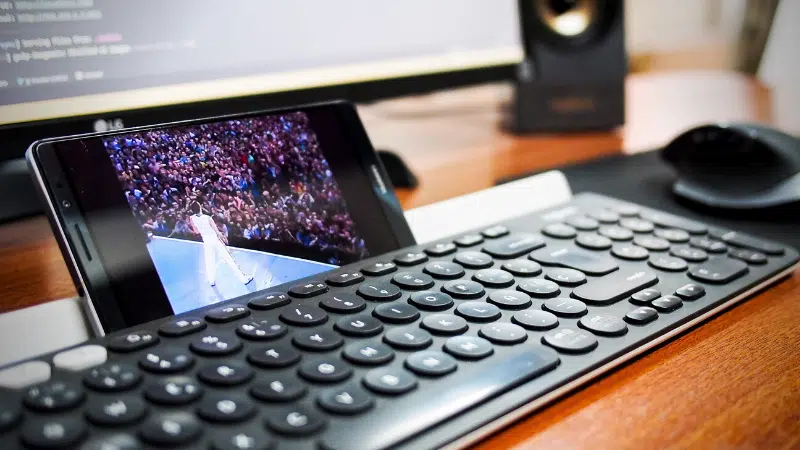Did you know that whether you post a link to your video or directly upload it to Facebook makes a big difference on its performance? Because Facebook posts with images see 2.3 times more engagement than those without, how your video shows up in the feed can make or break its engagement. Here’s what we know for sure…
Posting a YouTube Link vs Directly Uploading Videos to Facebook
[bctt tweet=”Did you know that whether you post a link to your video or directly upload it to Facebook makes a big difference on its performance? 🤭 Learn how on the Symphonic Blog…” username=”symphonicdist”]
Before we dive in…
Let’s break some things down a little before we dive in. It’s important to note that we aren’t saying to choose one or the other here. Ideally, you should be posting your latest video both ways. (The more the merrier, as they say.)
However, there are some qualities to each that you should consider anyway.
YouTube Links
YouTube is the biggest video sharing platform in the world, and its owned by Google. That being said, that means your YouTube videos are going to be pushed in Google searches.
On the other hand, Facebook isn’t so compatible. They’ll show your YouTube video link with a tiny little preview image and it won’t autoplay. Without the autoplay feature, a user has to click your video to get it to play. And that one extra step can literally make or break your video’s performance here.
(To prove it, Search Engine Journal even did a study that found reach on YouTube videos was half of what the Facebook videos received. That’s a significant value drop for such a seemingly small detail.)
What about posting directly to Facebook?
When it comes to native video on Facebook, these do better in a couple ways. The user-experience is better, the video shows up as a full image across your screen (not a measly little preview image), it auto-plays within the feed, AND the organic reach is just straight up better.
When a video is natively uploaded on Facebook, the person watching it doesn’t get redirected to another page to watch it like with a YouTube link. This also makes it more likely to be watched, liked, shared and commented on.
So, what should you do?
Cover all your bases and mix both of these in your strategy. Making sure your YouTube channel is well organized and in tip-top shape is still super important, and your traffic on Facebook plays a big part in engagement across all your other platforms. Together, these two make a power couple for the ages.
When it comes to YouTube, marketing and advertising can be the best tools in your arsenal. As opposed to paid advertising, organic marketing lets you optimize your channel without breaking the bank. That means making your channel look professional, ensuring it has all the appropriate links, optimizing the little details, and everything else you can do behind the scenes is all you need to make sure your videos are performing the best they can. (We did a post on this called,“Organic YouTube Marketing Basics for Musicians”.)
In Conclusion…
In the meantime, the facts are simple. If you want to truly engage your viewers on Facebook, upload your video natively to the platform. Posting a YouTube link just doesn’t get the same results.
Now, get back to work!


